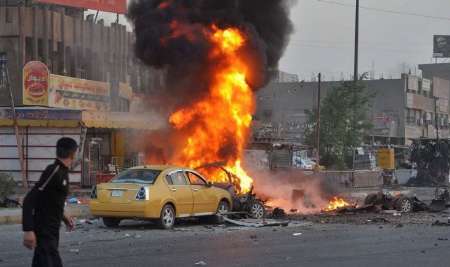
The number of civilians killed in March (not including police) was 543, while the number injured (not including police) was 561, the United Nations Information Center (UNIC) in Tehran reported.
Nineveh was the most affected Governorate, with 541 casualties (367 killed, 174 injured). Baghdad Governorate followed 84 killed and 246 injured, and Salah al-Din had 38 killed and 69 injured.
According to information obtained by UNAMI from the Health Directorate in Anbar, the Governorate suffered a total of 90 civilian casualties (32 killed and 58 injured). Figures are updated until 29 March, inclusive.
Special Representative of the Secretary-General (SRSG) for Iraq, Mr. Ján Kubiš, condemned continued deliberate targeting of civilians by the Daesh terrorists and praised the Government of Iraq’s efforts to protect civilians during the fighting in Mosul.
“The terrorists have used every possible wicked way to inflict casualties on civilians. Two car bombs killed or wounded many in the Baghdad area last month. In western Mosul, Daesh terrorists have forcibly transferred civilians, holding them as human shields as they retreated or at strategic locations in densely-populated areas. In cases, Daesh has placed civilians in booby-trapped buildings that its terrorists used to launch attacks on government forces, shot at civilians attempting to flee to Iraqi security lines or deliberately shelled civilian areas,” Mr. Kubiš said.
The SRSG said Iraqi Security Forces have spared no effort to protect civilians.
“I welcome the commitment of the Government of Iraq to the protection of civilians in the conduct of military operations and their reiteration that the protection of their citizens is an absolute priority,” Mr. Kubiš said.
In general, UNAMI has been hindered in effectively verifying casualties in conflict areas.
Figures for casualties from Anbar Governorate are provided by the Health Directorate and are noted in the March casualty report. Casualty figures obtained from the Anbar Health Directorate might not fully reflect the real number of casualties in those areas due to the increased volatility of the situation on the ground and the disruption of services.
In some cases, UNAMI could only partially verify certain incidents. UNAMI has also received, without being able to verify, reports of large numbers of casualties along with unknown numbers of persons who have died from secondary effects of violence after having fled their homes due to exposure to the elements, lack of water, food, medicines and healthcare. Since the start of the military operations to retake Mosul and other areas in Nineveh, UNAMI has received several reports of incidents involving civilian casualties, which at times it has been unable to verify. For these reasons, the figures reported have to be considered as the absolute minimum.
**2050
www.irna.ir
 solhkhabar | Peace International News Agency Peace International News Agency , Peace News , International Agency News of Peace
solhkhabar | Peace International News Agency Peace International News Agency , Peace News , International Agency News of Peace